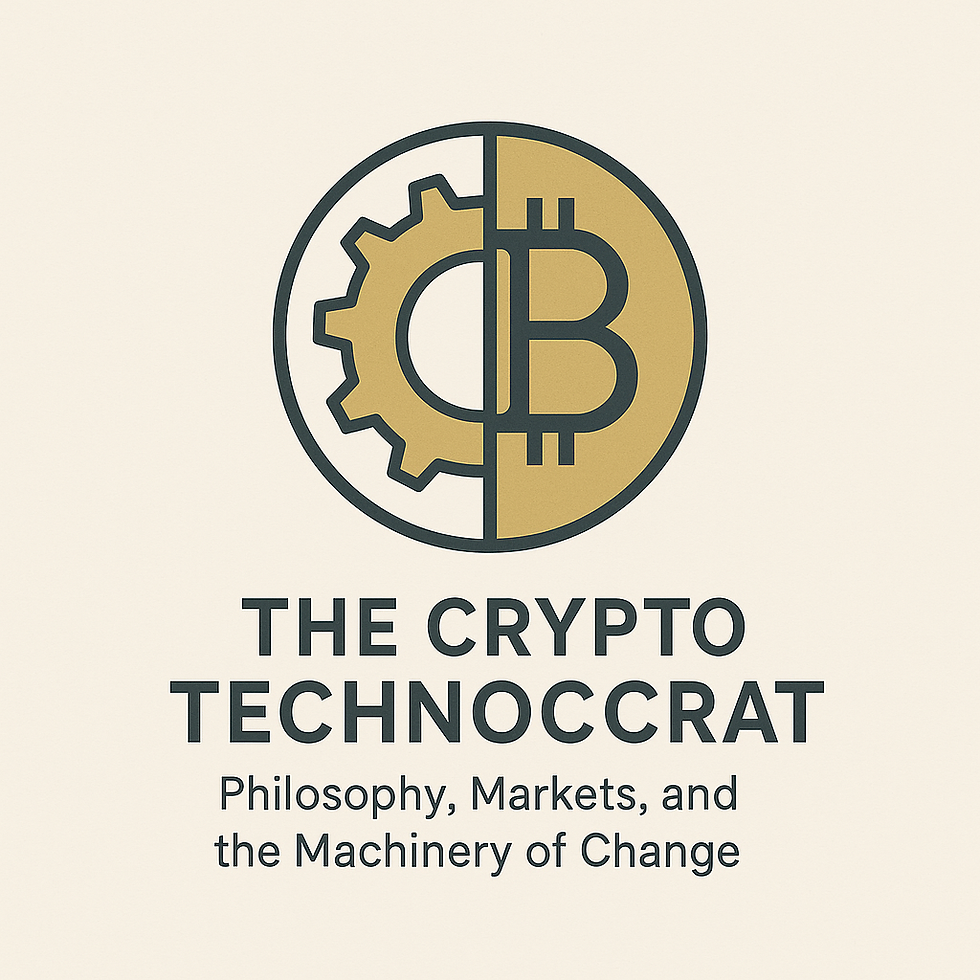The Technocratic Constitution: Building a Rational Republic for the Age of Systems
- Jim Wells

- Oct 27, 2025
- 4 min read

Introduction: The Failure of Ideology and the Rise of Systemic Reason
Modern democracy is drowning in noise — too emotional to be effective, too polarized to be productive, and too easily manipulated by the machinery of media and misinformation. The 20th century was defined by ideology. The 21st must be defined by intelligence.
In a world powered by data, algorithms, and automation, it’s time to ask: What if governance itself evolved?What if we rebuilt the social contract not on political rhetoric, but on verified knowledge, transparency, and ethical efficiency?
This is the premise of a Technocratic Constitution — a modern framework for governance grounded in competence, science, and humanity.
Governance by Competence, Not Charisma
The Technocratic Republic rejects the idea that leadership should be a popularity contest. Instead, authority must be earned through demonstrable skill, integrity, and problem-solving ability.
Every governmental position — from the Chief Technocrat to local administrators — would be filled through transparent, merit-based evaluations. Elections become civic performance reviews, not emotional theater.
Power, in this model, is not a prize. It’s a professional responsibility.
A New Structure of Government
Under this Constitution, the state is organized into functional councils instead of partisan branches.
The Council of Technocrats serves as the executive, led by a Chief Technocrat elected every six years through a Competency Vote, where knowledge and civic contribution carry weight.
The Civic Assembly, half chosen by direct democracy and half by algorithmic meritocracy, legislates based on Evidence Dossiers — data-backed proposals that simulate real-world outcomes before implementation.
The Judicial Forum ensures that all laws uphold rational ethics, with AI systems supporting judges in identifying bias and precedent — but never replacing human judgment.
This model blends human wisdom with machine precision — a partnership rather than a replacement.
Rights and Responsibilities in a Rational Society
A Technocratic Constitution does not abandon freedom — it refines it.
Citizens retain fundamental rights, but they’re tied to shared responsibilities.
The Right to Knowledge guarantees universal access to education and verified information.
The Right to Data Privacy asserts that individuals own their digital identity and the data it produces.
The Right to Economic Participation ensures everyone benefits from technological productivity through automation dividends and universal basic credits.
In exchange, citizens are expected to maintain rational engagement — staying informed, civil, and active in community review systems.Freedom, in this sense, is not passive. It’s participatory.
The Economic and Ecological Balance
The Rational Republic would run on metrics, not politics. National budgets would be generated through algorithmic models that weigh sustainability, equity, and efficiency.
Economic structure becomes a hybrid technocratic-market system: innovation thrives, but within rational boundaries set by data, not donors.
Core technologies — such as energy grids, communications, and AI systems — function as public utilities: transparent, auditable, and accessible to all.
Ecology becomes a pillar of national security. Every project must pass a lifecycle sustainability certification, ensuring progress never sacrifices the planet.
Information Integrity and AI Ethics
The Constitution recognizes that the information ecosystem is the battlefield of the modern era.Misinformation corrodes democracy faster than corruption ever did.
Thus, media entities must adhere to verified disclosure systems, with algorithms labeled and sources auditable.AI is welcomed into governance — but only as an advisor, never as an authority.All state AI must be open-source and subject to public ethical review.
Citizens maintain a sovereign digital identity for secure voting, participation, and policy feedback. The goal is not surveillance — it’s empowerment.
Global Responsibility and Defensive Intelligence
Defense in a Technocratic Republic shifts from aggression to resilience. The military’s purpose is not conquest but continuity — protecting energy, information, and environmental systems.
The Republic joins others in Global Technocratic Collaboration, prioritizing knowledge exchange over power struggles.Cyberwarfare, genetic weaponization, and ecological sabotage are constitutionally prohibited, declared crimes against humanity itself.
The Evolution Clause
Perhaps the most revolutionary idea in this Constitution is its Adaptive Renewal Cycle.
Every ten years, a Review Assembly—composed of citizens, scientists, ethicists, and AI—evaluates performance metrics and recommends amendments.
A live Public Metrics Dashboard tracks energy efficiency, education levels, justice speed, and social well-being in real time.The government becomes a living system — continuously optimized, constantly self-correcting.
The Ethical Core: Truth, Efficiency, and Benevolence
The moral center of this Constitution rests on three principles:
Truth – Decisions grounded in verified reality.
Efficiency – Systems that maximize human and ecological well-being.
Benevolence – Power wielded only in service of collective progress.
Technocracy, properly understood, is not cold or mechanical — it is humane by design. It removes ego and ideology from governance so that empathy can be measured in outcomes, not promises.
Conclusion: Reason in Motion
The Technocratic Constitution is more than a document. It’s a declaration that civilization itself must evolve — from emotion to evidence, from division to design.
Where democracy once balanced chaos and order, technocracy must now balance reason and empathy.
The Rational Republic doesn’t worship machines. It uses them — responsibly, transparently, and for the common good.
In the age of systems, the highest form of patriotism is competence.The future belongs to those who can build it with wisdom.




Comments